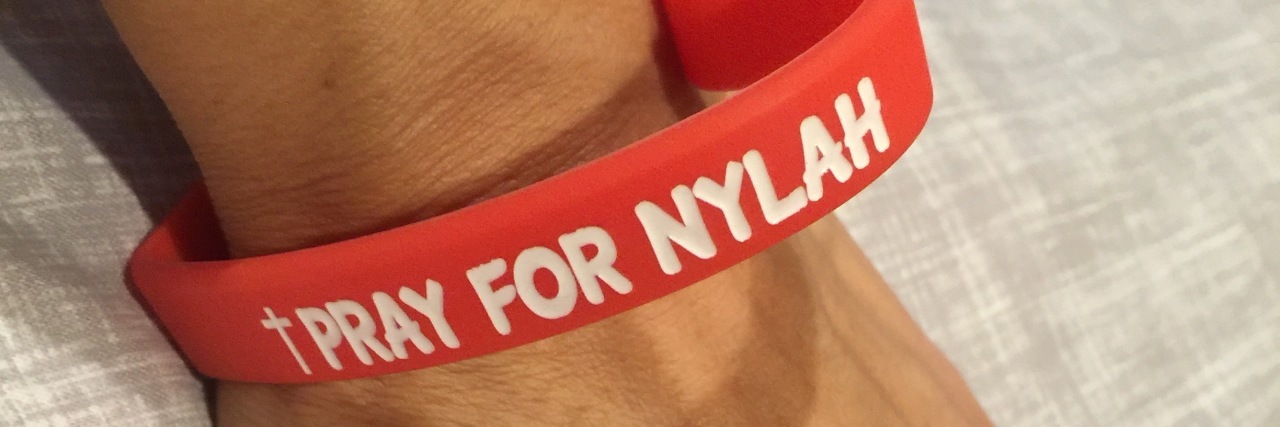Ever since I heard the words, “Something is wrong with your baby’s heart,” following a fetal echocardiogram, my life has been non-stop with agonizing worry and preparations.
My baby girl was diagnosed in utero at 24 weeks with the congenital heart disease, Tetralogy of Fallot (TOF), which means blood does not flow properly through her heart and there is not enough oxygen being carried through her body.
It’s been several months full of doctor appointments, meetings with specialists, cardiac surgeons, medical researching and referrals and touring hospital NICUs. On top of that, I spend hours upon hours laying awake at night feeling my baby girl move around my womb and wonder to myself, “what type of life will she live? how will her heart disease change all of the hopes and dreams I have for her? what’s going to happen next?”
The questions in my head are endless and relentless.
I’ve been told TOF is a rare disease affecting five in every 10,000 babies every year in the U.S. It’s also “common” because surgeons are accustomed to performing surgeries on heart babies resulting in positive outcomes. So why am I still not OK or even somewhat comfortable with the fact that my baby has been diagnosed with it?
As parents, our heart is ripped apart anytime our child is in pain, right? I hate when my twin boys get the smallest of cuts on their little bodies, and now I have to somehow find the faith and muster up the courage to hand over my baby girl to a surgeon for a life-saving surgery at least two times in the near future; possibly more throughout the course of her life.
It just doesn’t seem fair, and it’s a bitter, emotionally tough pill to swallow.
I am currently 32 weeks pregnant and every day feels like I am physically waiting for a bomb to drop in front of me so I know if I should run to the left or to the right. That’s the kind of uncertainty we have been prepped to deal with once she is born.
There are only three things we do know for certain:
1. Medication.
When Nylah is born she will be in the NICU and immediately started on a medication (Prostaglandin E1). It will help keep the vessel that connects the aorta to the pulmonary artery (which normally closes soon after birth) open to maintain blood flow to her lungs.
2. BT Shunt Repair.
Our fetal cardiologist expects Nylah will undergo a temporary heart repair when she’s between a couple days and a week old. In order to improve blood flow to the lungs, a small tube — or a shunt — is sewn between a large artery branching off the aorta to the pulmonary artery. This temporary heart repair will also give Nylah time to grow and get stronger to be able to tolerate a complete open-heart surgery.
3. Open-Heart Surgery.
The timing and urgency of her OHS depends on how severely the pulmonary valve is narrowed. At our last cardiology appointment we were told Nylah’s pulmonary valve is not growing much and is very narrow, making her disease “significant.” We are praying that between now and birth her valve will have a growth spurt in order to push off the OHS as long as possible.
I believe my heart baby’s journey will not only make her strong and resilient, but it will do wonders for me, too. Hopefully, it will make me the brave mother she will need to walk beside her throughout life, reminding her how she has earned the name “warrior” from day one.
Or maybe Nylah will get a miracle. Either way she’s perfect, and she’s my heart.

#prayforNylah
We want to hear your story. Become a Mighty contributor here.

